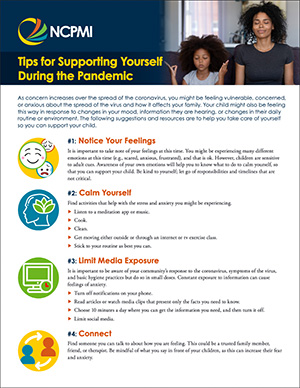Family Resources on Remote Service Delivery and Distance Learning
Family participation and engagement are invaluable to a child's growth and development. The resources below address the various dimensions of parent or caregiver involvement to help their children reach their maximum potential.
See also: Supporting Children and Families during the COVID-19 Pandemic, Videos on Preparing Families
Learning Activities and Supports
Practice Improvement Tools: Practice Guides for Families
Our Practice Guides for Families are a set of resources within our Practice Improvement Tools intended for practitioners to share with families. The Practice Guides are formatted for print as well as for viewing on mobile devices, and are listed by the DEC Recommended Practices topic area.
Family Guide to At-Home Learning (CEEDAR)
This guide has practical strategies that work for helping children of all ages who may be struggling with an at-home learning task. Families may find these strategies useful when helping their children complete various reading, math, and/or behavioral tasks at home.
Social Emotional Development
National Center for Pyramid Model Innovations (NCPMI)
These resources from NCPMI support families in helping young children cope with the challenges that might occur during stressful emergency or disaster situations.
They include scripted stories, tip sheets, and infographics on strategies to prevent and respond to child stress and challenging behavior, as well as support adult stress-management and self-care. Most of these resources are available in both English and Spanish.
Get Started
Supporting Individuals with Autism through Uncertain Times (AFIRM)
Supporting Individuals with Autism through Uncertain Times is a toolkit that provides user-friendly, evidence-based resources for people supporting individuals with autism spectrum disorder (ASD). The toolkit was developed by experts from the UNC Frank Porter Graham Child Development Institute, the UNC School of Education, and the UNC School of Medicine's Department of Allied Health Sciences.
